
Some people might disagree, but I think the art of leading has greatly diminished in recent history. When I was a young man, we learned to lead our horses ahead of us. We had some bad horses in those days that would try to bite you or get after you, so you had to lead your horse in the "safe zone," walking with your horse beside you. This way, if one of those tough horses came after you, you could put your arm out to push him away and protect yourself.
Today, we generally have much better trained horses overall, which might make leading seem like a miniscule part of your horsemanship. Maybe you're too busy thinking about what's coming next as you lead your horse to the arena or trailhead to worry about him lagging behind you, pulling on the rope. But I'm here to tell you that lazy leading causes far more problems than you might imagine.
Here, I'll explain why proper leading technique is essential for all riders and how to reboot a horse that's developed the habit of walking behind you instead of up beside you.
The Liabilities
How you lead your horse to the arena-or even to the wash rack or saddling area-sets the tone for all you'll do with that horse on that day. One habit begets other habits. So, if he's lazy to walk to the arena, he'll be lazy about getting to the mounting block, for example. Then he'll be apathetic about the training session and schooling during your ride, or maybe he'll slog down the trail, ignoring your cues to move forward at a faster pace.
This story is from the {{IssueName}} edition of {{MagazineName}}.
Start your 7-day Magzter GOLD free trial to access thousands of curated premium stories, and 9,000+ magazines and newspapers.
Already a subscriber ? Sign In
This story is from the {{IssueName}} edition of {{MagazineName}}.
Start your 7-day Magzter GOLD free trial to access thousands of curated premium stories, and 9,000+ magazines and newspapers.
Already a subscriber? Sign In
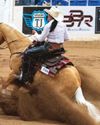
The Horse
LIFE TAKES US DOWN different paths, but I seem to be on just one, which is with the horse.
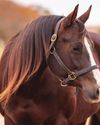
Decoding the Diseases Examined by AQHA's Six-Panel Test
The six-panel test is a diagnostic tool used to assess the genetic predispositions of horses. It's meant to discover if a horse has or is a carrier for certain hereditary diseases and traits.
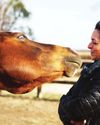
Love is Good
All horses are assured a hopeful, compassionate plan of care at This Old Horse, a program that helps not only horses but people, too.
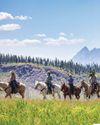
HORSE PACKING 101
Take your trail riding to the next level with nature-filled adventures in the back or front country.
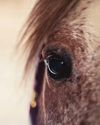
NEW HORSE; NEW PROBLEMS
Anew horse can bring excitement and energy to the barn, and even reinvigorate your passion. However, there are also a myriad of new problems that can come with a new horse, so learn how to introduce him properly to avoid these common issues.
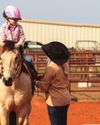
First-Timer Tips
Heading to a young rider's first event with their horse can be intimidating. Use these myths and truths to make it smoother sailing for yourself and your young rider.
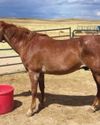
Re-Rescued: Aslan's Story
One special gelding learns about three different types of love during his rescue journey.
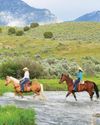
The Country's Hottest Horse Motels
Take your next trail-riding adventure to the next level by staying at one of these six horse motels across the United States.
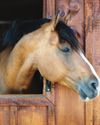
Outbreak! What We've Learned
Learn how disease outbreaks in recent years have changed the horse industry, and why it's so important to play your part when it comes to disease prevention efforts.
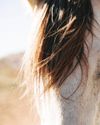
TRAINING THE SENSITIVE HORSE
Shift your mindset and grow your sensitive horse's pressure-handling skills to improve his confidence and your riding enjoyment.